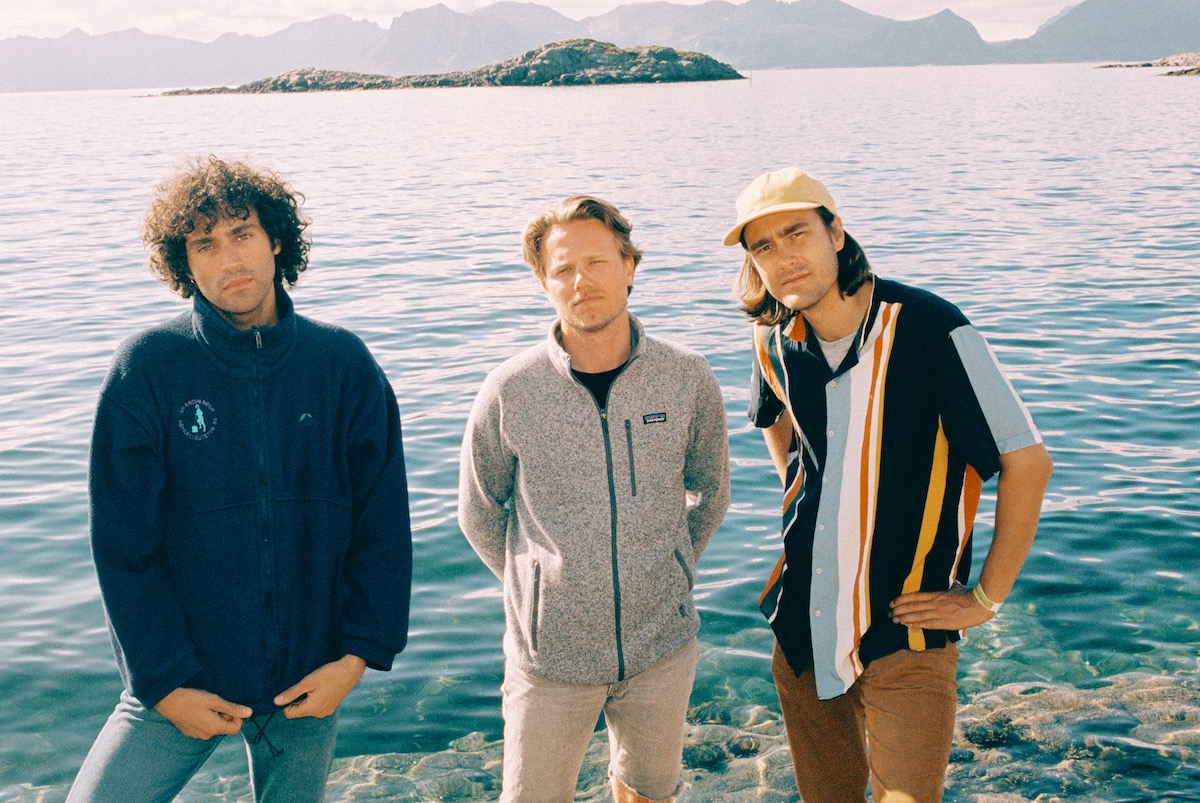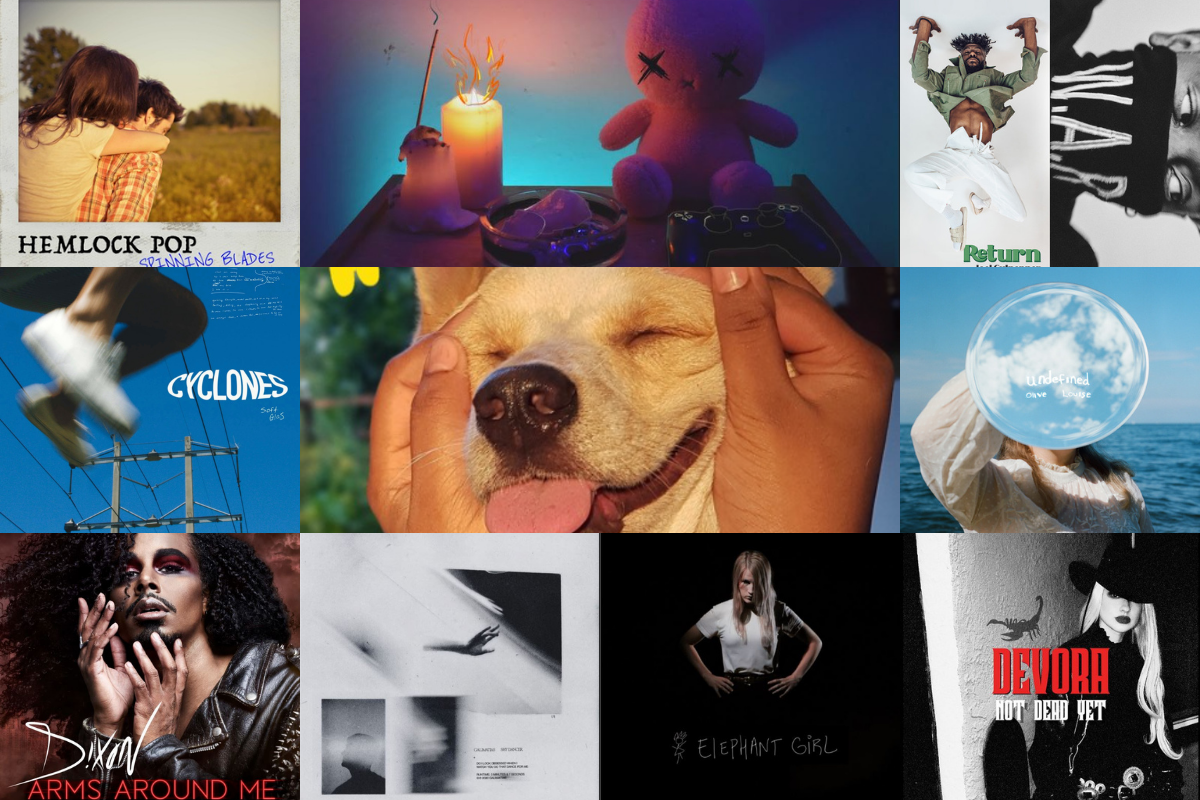Honus Honus, as Ryan Kattner is known to his fans, spent four years developing the new Man Man album and now should be ready to roll with the well-crafted ‘Dream Hunting in the Valley of the In-Between.’
— —
All the lag time created by quarantine sure seems to have provided some artists with the means and incentive to complete their first albums since the early 2010s. And not just Fiona Apple, either. Man Man, an L.A.-based experimental rock group, has recently returned with its first all-new release since 2013’s On Oni Pond, entitled Dream Hunting in the Valley of the In-Between.

Ryan Kattner, the lead vocalist and lyricist for Man Man, found a good deal of ways to fill in his time while his band was taking a breather. He continued to perform under his alias Honus Honus, recording one solo album, a sadly-unreleased children’s album, and a couple of records with his indie side project, Mr. Heavenly. Aside from music, he also dabbled in an impressive variety of creative endeavors, including acting, screenwriting, music journalism, and graphic novel-writing.
In time, however, Kattner couldn’t help but start to miss the group he’d helped to found back in 2003 in his native Philadelphia. He soon began creating new material for Man Man with longtime creative collaborator Cyrus Ghahremani offering his production services. All of these joint efforts culminated with the May 1st release of Dream Hunting in the Valley of the In-Between. This album marks a grand comeback for Man Man and also represents their first release under their new label, Sub Pop, the label most famous for signing Nirvana and Soundgarden in the late 1980s.
Kattner speaks to Atwood Magazine about the dawning of Man Man’s new career phase and the making of the record he feels is his personal best.
‘Dream Hunting in the Valley of the In-Between’ – Man Man
A CONVERSATION WITH MAN MAN
Atwood Magazine: What inspired you to make another Man Man record after seven years?
Man Man: This album took nearly four years to complete. I felt that, personally and creatively, I was at a crossroads. I felt the way a lot of people do when they reach a point where they have to decide if the current path forward is the one they should adhere to or if they should peel off and pursue a different life.
In many ways, the album title reflects that: Dream Hunting in the Valley of the In-Between. It’s a purgatory situation— whether to throw in the towel or whether to keep pushing the boulder up the mountain. And who would have thought that the record would be so relevant right now during the global pandemic? Although that all feels really heavy, I’m most proud that, while this album encompasses feelings of heartbreak and isolation at times, it’s also fun and joyous and it discovers a celebration in moving on and starting over. I always joke about making music that’s defined as “apocalyptic pop,” but did I ever think that would come to light in my lifetime? Absolutely not.
What exactly is apocalyptic pop?
Man Man: I’ve always joked that our music encompasses all genres, for the most part. And while I may not feel it now, I could always see it being played on a melted jukebox in a post-apocalyptic landscape, on a Waterworld raft or something. The album cover has become a visual representation of what we’re all going through right now.
What was it like to take such a lengthy hiatus from Man Man?
Man Man: I liked it in a strange way. It was a forced hiatus and it was very surreal, but it made me have to figure out a way to exist without Man Man as my base. But it was good because I made three other records in the interim. I met some badass musicians, most of all my producer Cyrus Ghahremani.
If anything, the time away gave me time to focus on the new Man Man album and put more creative effort into it. And it paid off in the end because I feel like this is probably my best record.

How does making music under your Man Man persona compare to doing so in its absence?
Man Man: The real difficulty is doing it under my non-Man Man persona since I feel like Man Man is my real solo act. So when I was releasing a new “solo” album by myself, it was a challenge. I had to figure out how to make an album that sounded different from what I would normally make which I do anyway so you can see the conundrum.
Whether I’m working with Man Man or not, every album is a challenge for me to complete. I suffer from this annoying condition of forgetting how to write songs after I do each record. So I have to continually figure out how to make new music, and it’s awful. Although, on the plus side, it makes me want to figure out how not to repeat myself.
But at the end of the day, I have this voice that I have, I have this brain that I have, so it’s going to wind up sounding like me. The most important thing is to not be stagnant and to surround yourself with the people who challenge you, creatively and musically.
How did you approach recording this new album?
Man Man: When it comes to writing the core of a new record, the skeletons of the songs, I have to figure out how to work alone. I write in a shack in the backyard of a friend’s house here in L.A. — it’s just a shack with an old upright piano and I spent about three years working on the songs in there. I have a lot of friends who, in three years’ time, can write about a dozen albums. And I hate them for that. For me, it takes three years to do one record and that’s just how it is.
Since we weren’t on a label, we had to self-finance. The solo band wasn’t making any money, which is why I had started working all sorts of freelance gigs, which, although frustrating and scary, was also exhilarating, because it allowed me to start anew and connect with other artists and players.
Cyrus— God bless him, or actually, Satan bless him— worked a full-time job and had a family but was able to squeeze in recording time from the pockets of his non-existent free time. And I had the pleasure of discovering other musicians through the solo band. Kevin, Brett, Casey, Dylan, Harry, Sam, Tay. We were fully away that this was a creative adventure and not a money-making experience, which was refreshing.
The coolest thing about recording this album— aside from being able to test out the material to audiences of almost no one under my solo name— was that, after three years of recording, and the bulk of the record completed, I was able to sit down with Cyrus and he didn’t lose his mind when I told him the record didn’t feel right. The vibe was off, and something crucial was missing. So that’s when we decided to scrap a lot of it. We booked a week-long Man Man tour, played mostly new material, and then rolled into a studio and re-recorded songs live with a full band playing. Which is crazy! It was pretty wild because— let me reiterate— we spent three years recording the album, and then we re-recorded it live as a band. It was awesome!
Watch: “Future Peg” – Man Man
What’s it like to be releasing your debut record on your new label, Sub Pop?
Man Man: It’s pretty special. My other band, Mr. Heavenly, put out our first album with Sub Pop in 2011, and the experience was really fantastic. So to be able to do another record for Sub Pop with my own band, Man Man, just makes me feel very fortunate. The guys on the label are good people— it’s like a family.
You’re a Philadelphia native who now lives in Los Angeles. How have these two cities combined to influence your life and music?
Man Man: The stuff that I create is completely informed by where I live. I don’t think I would have this band if I didn’t have the upbringing in Philly that I did. It’s a city with this real no-bullshit attitude. It has this quality of “I’ll do what I want, I don’t care if you don’t like it,” which I think definitely informed the music of our band. It’s also a really weird place in the best sense. And when you’re a young band starting out, the world seems so large, and you’re completely insignificant in it— it’s a great place to be.
And I think it’s only fitting that I ended up in Los Angeles, which is equally bizarre as a city.
You say you’ve gone from sleeping 2.5 hours a day to 3.5 hours a day now that you’ve finished recording your new album. How do you cope with sleeping patterns of that nature?
Man Man: It’s unhealthy! It sucks, man! It is brutal. I need to get a sleep study, but my insurance doesn’t cover it.
Watch: “Cloud Nein” – Man Man
What’s it been like to hold down a variety of side jobs while also working on your music?
Man Man: It was a real kick in the pants but you do it because you have to. When I finally recommitted myself to making this record and touring extensively behind it, with no umbrella anymore, the way it used to be…. global pandemic! [Laughs]
One of the silver linings I can see in this is that I made an album that’s intended to be listened to in one sitting and people now have time for it. Sub Pop actually gave us the option to push the record back and to have a later release date. But I figured, “What the hell. People need music right now more than ever. I might as well present a fun soundtrack with oftentimes… heavy lyrics!” Naw, naw. [Laughs]
What are your hopes for after this pandemic ends?
Man Man: I just hope this album doesn’t fall through the cracks. We look forward to touring and sharing our music with people. I love playing shows— the connectivity of it, the non-social-distancing aspect of it, the getting sweaty in a crowd and exorcising away all the bullshit that happened during the day.
We were hoping to start a national tour and then head over to Europe. I just love playing shows, but that’s all on the backburner for now. It might not even happen until fall 2021 or 2022.
Anything you’d like to add?
Man Man: I’m just thankful for everyone who played on the record. And I hope that people can use this music as a distraction or getaway or to help them with whatever they’re going through right now. Buy our album!
— —

Connect to Man Man on
Facebook, Twitter, Instagram
Discover new music on Atwood Magazine
? © 2020
:: Stream Man Man ::








